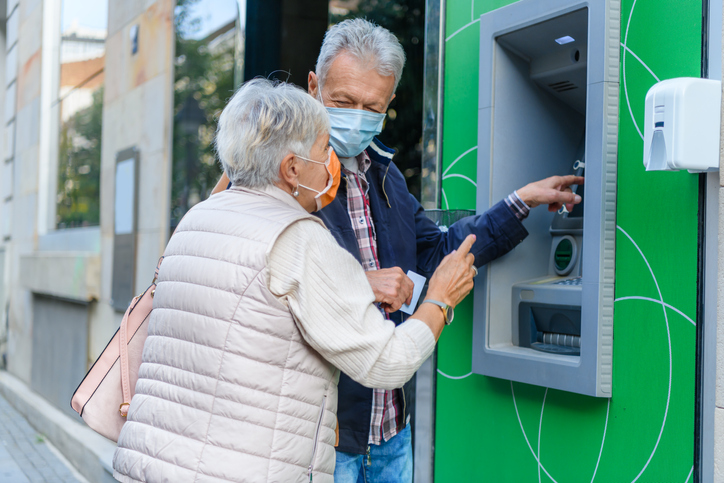Why Seniors Are Vulnerable to Scams
Seniors can be more susceptible to scams due to a combination of factors, including isolation, trust, and cognitive decline. They often don’t understand the new technology and how easily they can be compromised, for example, with just a click on a link in a phishing email. Recognizing these vulnerabilities is the first step in protecting them from potential scams.
Common Scams Targeting Seniors
To effectively protect seniors from scams, it’s essential to be aware of the types of scams that are prevalent:
- Telemarketing Fraud: Scammers use phone calls to sell fake products, services, or investment opportunities.
- Phishing and Email Scams: Seniors may receive emails or messages that appear legitimate, like from Canada Revenue, but are designed to steal personal information or money.
- Social Engineering: Scammers may impersonate family members or friends, requesting money for emergencies or posing as trusted organizations. These scams are especially prevalent on social media (i.e. Facebook & Instagram) and can also be their own accounts that are being used to deceive friends and family.
- Medicare and Healthcare Fraud: Seniors may be targeted with false medical treatments, insurance fraud, or Medicare scams.
- Catfishing: Especially for seniors who are recently single and feeling some renewed \”energy\”, they may attempt to jump back into the dating ring through dating sites or apps. They may not be in their \”prime\” anymore, but they are prime targets for scammers to pretend undying love and then trick them into sending them personal details and money. And… these wolfs in sheep\’s clothing have very sneaky ways of gaining trust, like reverse scams where they offer help by sending them money and the victim gives up their bank bank or credit card details without even questioning it.
- Physical or Virtual Theft of Bank and/or Credit Cards: Whether online or at the store, seniors are often easy targets. A thief can gain the senior\’s trust by offering help to get close enough to see their PIN number and can slip the card away right under the senior\’s nose. This happened to my father-in-law a couple times, so my partner set him up with an Apple Watch with Apple Pay.
The Role of Family & Caregivers (including professional In-Home Care providers)
It is so important for family and caregivers to help educate the seniors in their care, take extra steps to ensure they are well protected, and keep a vigilant watch if they see or hear anything suspicious.
At Sunshine Coast Senior Care, our Registered Care Aides and Nurses are more than just caregivers; they are trusted companions who are often deeply connected with the seniors they assist. Here’s how we can all work together to protect our seniors from scams:
- Education: Caregivers can help educate seniors about common scams, warning signs, and how to spot fraudulent requests or suspicious activity. They can provide valuable insights to both seniors and their families.
- Monitoring: Caregivers and family can keep a watchful eye to identify any suspicious communications. When having conversations with seniors and sharing stories/events, keep an ear out for anything suspect, like a call from CRA to collect outstanding taxes. This vigilance is an additional layer of protection and an essential element to keep those in our care safe from being taken advantage of.
- Encouraging Vigilance: Caregivers can encourage seniors to be cautious, ask questions, verify requests, and seek advice from people they trust before making any financial decisions or give out information.
- Reporting: If there’s any suspicion of a scam, caregivers should promptly report it to family members and the relevant authorities.
Tips for Families and Caregivers to Prevent Scams
Here are some actionable tips for families and caregivers to work together in preventing seniors from falling victim to scams:
- Open Communication: Maintain open lines of communication with your loved one and their caregivers, ensuring everyone is on the same page regarding their care and safety.
- Stay Informed: Keep abreast of common scams and warning signs through reliable sources, and share this information with caregivers and your senior loved ones.
- Regular Check-Ins: Where our dedicated team of owners, compassionate nurses, and skilled Registered Care Aides come together to curate a wealth of up-to-date news, useful information and invaluable insights into in-home care. Regularly check in with your senior family member to discuss any unusual or suspicious communications they may have received.
- Be Supportive: Ensure that your senior loved one feels comfortable sharing their concerns and experiences with you and their caregivers.
- Immediate Action: If a scam is suspected, take immediate action by reporting it to local authorities and relevant consumer protection agencies.
At Sunshine Coast Senior Care, we emphasize the importance of a collaborative effort to protect our senior clients from many of the pitfalls that they are vulnerable to, including scams. Our dedicated caregivers, Registered Care Aides, and Nurses, are valuable partners in this endeavor. Together, we can create a secure and supportive environment in which seniors can age gracefully and confidently in their homes, knowing that their physical and emotional safety are our top priority.
If you are interested in learning more about our in-home care services or want to book a free consultation with us, contact us or call 1-888-383-4569. We are here to help you and your senior loved one stay safe and comfortable during these challenging times.


I was reading through some of your posts on this site and I
believe this site is rattling informative! Continue putting up.Blog money